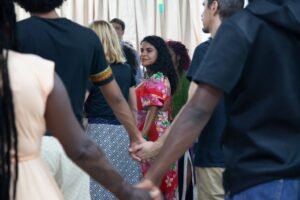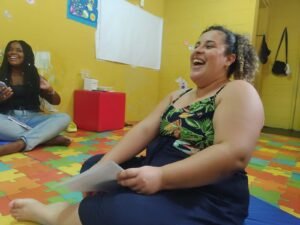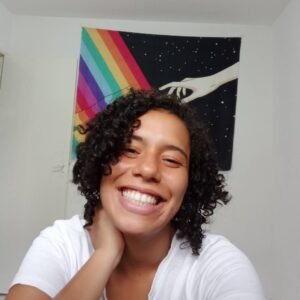
Katró, GSA 2022: Transforming realities: the contribution of hip hop to a just Angola
This article was voluntarily translated by Israel Caravallo, a member of the Elos Translation Community. I’ve always dreamed of a just Angola, where everyone has

This article was voluntarily translated by Israel Caravallo, a member of the Elos Translation Community. I’ve always dreamed of a just Angola, where everyone has

Dimas Reis is like river water, in an agitated movement towards an ancestral future that he constructs with his chest, heart, and hands. He exists

This article was voluntarily translated by Israel Caravallo, a member of the Elos Translation Community. Creativity and efforts, alone, tend to be insufficient for the

This article was voluntarily translated by Antonio Oliveira, a member of the Elos Translation Community. Leia em português aqui. GSA 2014, Priscilla Pereira is an

Leia este artigo em português aqui. Lea este artículo en español aquí. This article was translated by Antonio Oliveira, a volunteer participant in the Translation

This article was translated by Izadora Silva, a volunteer participant in the Translation Community at Instituto Elos. The origin of the word utopia is Greek

Na segunda edição do Mapa de Abundância temos o depoimento de ShivShera Azeer. Ele é indiano e veio para o Guerreiros Sem Armas (GSA) em
We connect people, communities, governments and companies to learn together and work towards the best world possible.
ELOS INSTITUTE
Rua Marechal Hermes 37
Boqueirão, Santos – SP
BRAZIL
+55 13 3326-4478
elos@institutoelos.org
Your contribution takes social education to young leaders and communities worldwide.